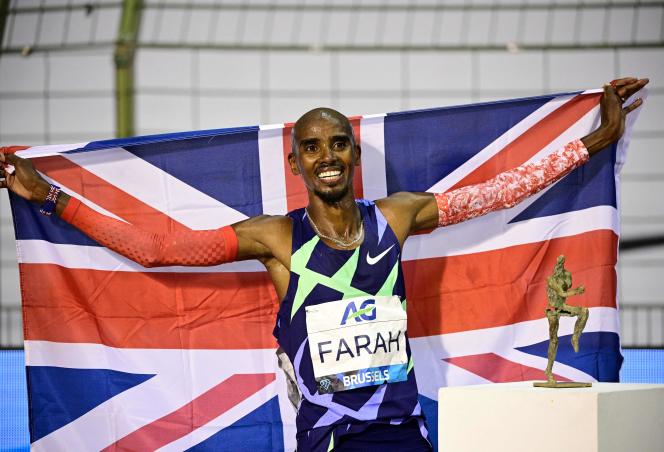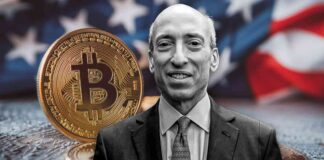“The truth is, I’m not who you think I am. Most people know me as Mo Farah, but that’s not the reality. This is how Mo Farah, four-time Olympic athletics champion, reveals in a documentary that he arrived in the United Kingdom illegally under a false identity. “I was separated from my mother, and I was brought in illegally under the name of another child called Mohamed Farah,” the British athlete explains in an interview which will be broadcast on Wednesday July 13 on the BBC.
Following his revelations, the British Home Office told Agence France-Presse (AFP) on Tuesday July 12 that “no prosecution will be [it] initiated” against the sportsman.
The man who was Olympic champion in the 5,000 meter and 10,000 meter events, in 2012 and then in 2016, tells the BBC that he received the name of Mohamed Farah from a woman who had brought him to the Kingdom. Kingdom – telling him he would join relatives there – from Djibouti, an East African country, when he was 9 years old.
His name is Hussein Abdi Kahin
The 39-year-old athlete, whose father was killed in Somalia when he was 4, says his real name is Hussein Abdi Kahin. His mother and two brothers live in the separatist region of Somaliland, unrecognized by the international community. “The real story is that I was born in Somaliland, northern Somalia, as Hussein Abdi Kahin. Despite what I have said in the past, my parents never lived in the UK,” he explains.
Upon his arrival in the country, the woman who accompanied him took the paper on which appeared the contact details of his relatives, “tore it up and put it in the trash”, says Mo Farah. “At that moment, I knew I had a problem. »
Mo Farah, the first British athlete to win four Olympic gold medals, also says he was forced to do housework and care for other children with a family in the UK. “If you ever want to see your family again, don’t say anything,” he heard himself say. “A lot of times I would lock myself in the bathroom and cry,” he says.
“I often think of the other Mohamed Farah”
One day, he finally revealed the truth to his physical education teacher, Alan Watkinson, who had noticed his mood swings whenever he was on the track. He then moved in with a “friend’s” mother, who “really looked after” him.
“The only language he seemed to understand was that of physical education and sport,” says Alan Watkinson. “The only thing I could do to get out of this [situation] was to get out there and run,” the athlete said. Alan Watkinson then applied for British citizenship for Mo Farah, who obtained it on July 25, 2000.
The athlete explains that it was his children who encouraged him to reveal the truth about his past. “[This secret,] I kept it for so long, it was difficult because you don’t want to face it and often my children would ask questions (…). And you always have an answer for everything, but you don’t have an answer for that. “That’s the main reason I’m telling my story, because I want to feel normal and not feel like I’m clinging to anything,” he said.
Mo Farah, who called his son Hussein, in reference to his real first name, concluded: “I often think of the other Mohamed Farah, the boy whose seat I took on that plane, and I really hope that ‘he is fine. »

















